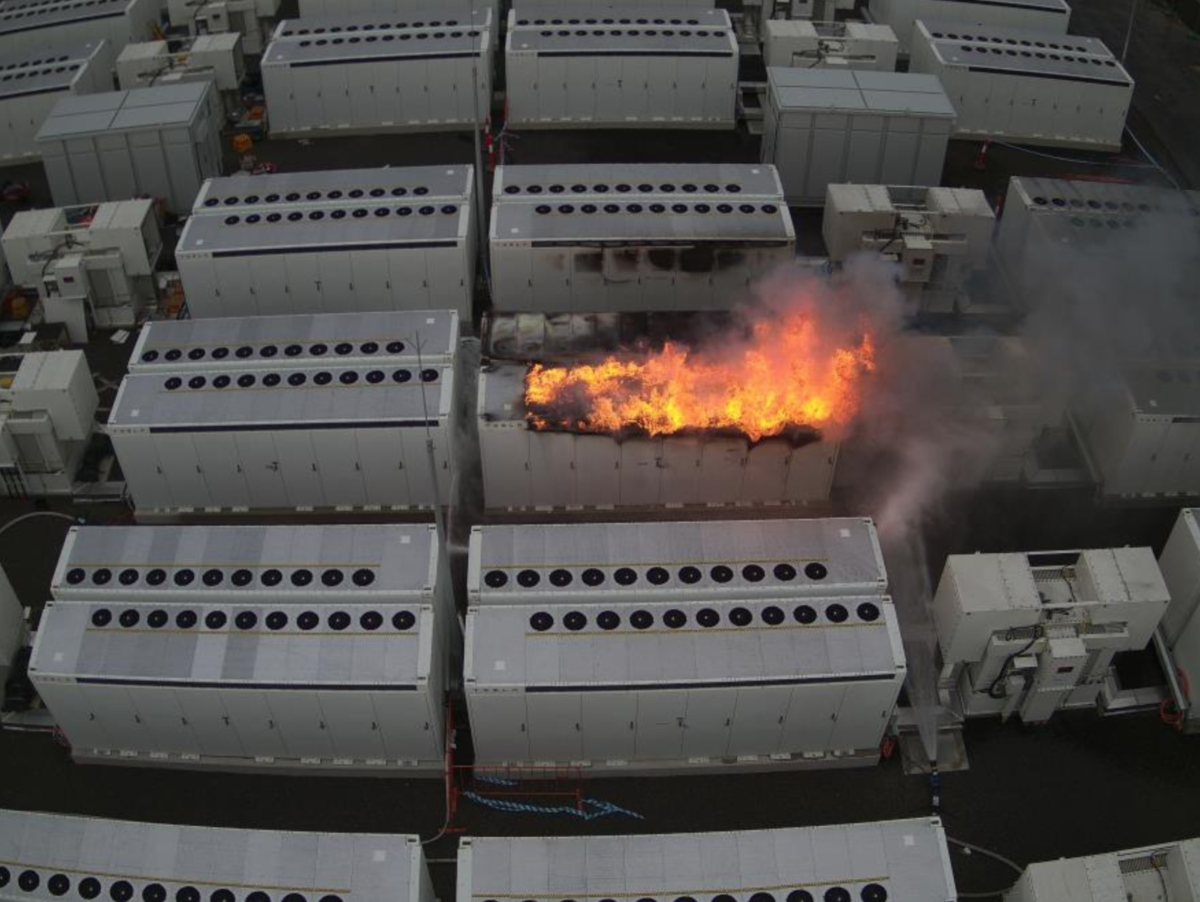From pv magazine Global.
Fire broke out in a battery energy storage facility housing a 182.5 MW Tesla Megapack system, where at least one of the battery units caught on fire. The facility is operated by utility PG&E and is located in Monterey County, California, in the United States.
“There have been no injuries to onsite personnel, and there are no electrical outages for customers at this time due to the incident,” Jeff Smith, operations and communications manager at PG&E, told pv magazine.
The fire started at 1:30 am Pacific Time (PT) on the morning of September 21, and was fully controlled by firefighters at the North Country Fire Department by 7:00 pm PT. It caused California’s Highway 1 to shut down. The County Sherriff’s Office lifted its twelve-hour long shelter-in-place advisory at 7 pm PT and reopened the roads. Residents had been asked to shut all windows and turn off ventilation systems due to the hazardous material emitted by lithium-ion battery fires. The County Office advised via Twitter that smoke may still occur in the area for several days despite the fire being fully controlled.
According to local media reports, firefighters let the initial megapack burn out and worked to prevent flames from spreading to adjoining batteries and structures in the large-scale system, as per protocols recommended by PG&E and Tesla to the fire department. The cause of the fire is still unknown, and a joint investigation will be carried out by PG&E and Tesla.
“Safety systems at the facility worked as designed and automatically disconnected the battery from the electrical grid,” Smith said. Property damage to the battery is expected to exceed $50,000, according to preliminary information shared by PG&E.
The Californian facility is one of the biggest utility-owned, lithium-ion battery energy storage systems in the world. A Tesla Megapack also caught fire last year in the Victorian Big Battery in Moorabool, Australia.
This content is protected by copyright and may not be reused. If you want to cooperate with us and would like to reuse some of our content, please contact: editors@pv-magazine.com.








By submitting this form you agree to pv magazine using your data for the purposes of publishing your comment.
Your personal data will only be disclosed or otherwise transmitted to third parties for the purposes of spam filtering or if this is necessary for technical maintenance of the website. Any other transfer to third parties will not take place unless this is justified on the basis of applicable data protection regulations or if pv magazine is legally obliged to do so.
You may revoke this consent at any time with effect for the future, in which case your personal data will be deleted immediately. Otherwise, your data will be deleted if pv magazine has processed your request or the purpose of data storage is fulfilled.
Further information on data privacy can be found in our Data Protection Policy.